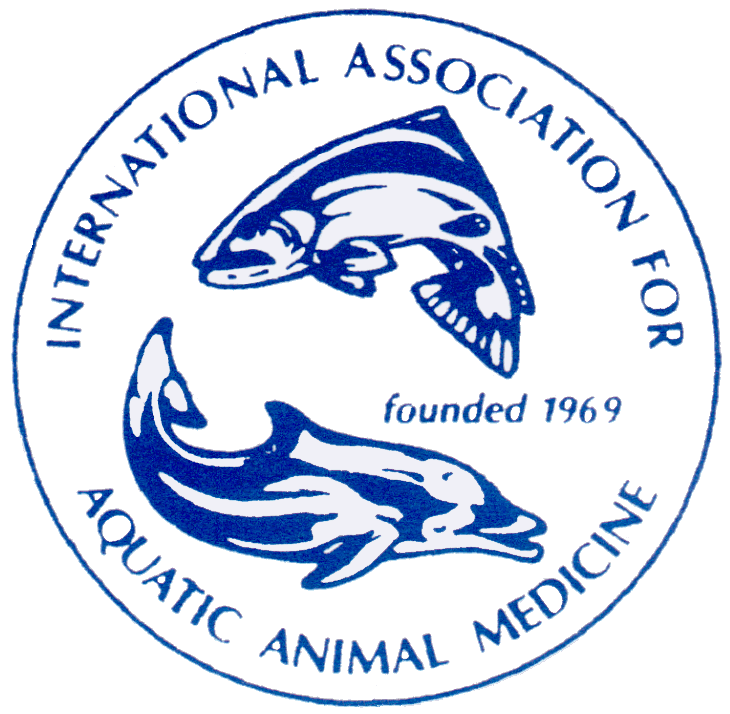How Do I Get Into Aquatic Animal Medicine?
Advice and words of wisdom compiled and adapted from various responses by various IAAAM Board Members…
Welcome to the wonderful world of aquatic animal medicine! Just by asking your question you have joined a diverse group of people with interests in better understanding and caring for the oceans, lakes, rivers, streams and ponds that cover over 70% of our globe’s surface and the countless creatures that inhabit them. Humankind has left tire tracks on the planet Mars in our search for water- - the most essential nutrient. And the Hubble telescope has given us glimpses of the far reaches of space and time- - but we have yet to visit the deepest realms of the earth’s most precious aquatic environs. So keep asking those questions and enjoy the ride. Even the Hubble has been visited by an IAAAM member - a marine mammal veterinarian turned astronaut. Who knows where the journey may take you?
Unfortunately, there probably is no straight-forward or typical answer to achieving a career in aquatic or marine mammal medicine. First, no veterinary college has a comprehensive program for specializing in aquatic or marine mammal medicine. Most veterinary colleges (which is typically four years of dog, cat, cow, and horse medicine) sometimes have a sprinkling of non-domestic species classes that may include poultry, pet birds, lab animals, pocket pets, amphibians, reptiles, fish and sometimes marine mammals. After graduation the options are numerous, and include additional graduate work in fish or marine mammal medicine, private practice, or even a job at a facility with aquatic animals (though rarely does a new veterinary graduate get this type of position right away).
Another option is to gain a year or two of hands-on private practice, and then apply for one of the internships in aquatic medicine that are available at a variety of facilities across the country. These include internships at places such as the National Aquarium in Baltimore (marine mammal, amphibians and fish), Mystic Aquarium (marine mammal and fish), Florida Aquarium (marine mammal and fish), The California Marine Mammal Center (all marine mammal), Delta Extension and Research Center (mainly catfish), or Prince Edward Island University in Canada (mostly fish and shellfish), etc.
In the mean time, we would suggest that you get as much education and practical experience along the way as possible. This might involve volunteering at aquariums, rehabilitation facilities, research labs, or aquatic animal facilities.
Finally, you may find useful the following publication put out by the U.S. Government (in print and on the Web) which gives lots of information on the future of particular careers and includes salary projections. Keep in mind that there will be listings for generic titles such as marine biologist or veterinarian, but very specific titles are not listed. This resource is usually kept in the Reference collection of all libraries. It's called the "Occupational Outlook Handbook". The Web version (and a quarterly update) is located at http://stats.bls.gov/ocohome.htm)
The following are more web sites designed by societies or marine science libraries to assist persons interested in marine science careers:
Scripps Institute of Oceanography Career page
This page lists many sites with information in marine science careers.Ask a Marine Scientist
Choose "Ask a Scientist" This page provides answers to questions about marine biology careersMarine Careers
This site provides advice, strategies, and career profile links to other web pages.
Many organizations and societies involved in aspects of marine biology research and education have helpful information on their own web sites about careers. The "Encyclopedia of Associations" is an important resource found in the Reference section of most libraries. It has subject listings of these many associations.
The Society for Marine Mammalogy has a detailed web page called "How to Become a Marine Mammal Scientist". This includes a list of reference books about environmental careers.
You may wish to visit a local aquarium that has marine mammals to interview the research and/or veterinary staff. Check the American Zoo and Aquarium web site.
The National Association of Marine Laboratories (NAML) has a list of marine labs by geographic regions.
The GLODIR directory lists marine science researchers (and their research areas) from around the world:
A 40-page booklet you should contemplate buying is published by the National Sea Grant program and is called "Marine Science Careers: a Sea Grant Guide to Ocean Opportunities". There are more than 30 interviews with all types of marine science researchers and it may answer MANY of your questions. It's $5 from the California Sea Grant College System: phone (858) 534-4446.
And finally, the International Association for Aquatic Animal Medicine (IAAAM) is an organization of veterinarians and other professionals interested in aquatic animals (marine mammals, birds, fish, invertebrates, etc.). The focus of our organization is for the professional members to exchange information about aquatic animal medicine, teaching and research in aquatic animal medicine or the husbandry and management of aquatic animals. www.iaaam.org Another organization that may be of interest to you is the EAAM (European Association of Aquatic Mammals).
Any path you decide upon taking will probably require time, dedication and persistence (just like getting your DVM degree). Get as much experience as possible, meet as many people you can, and keep your eyes open for different opportunities.
